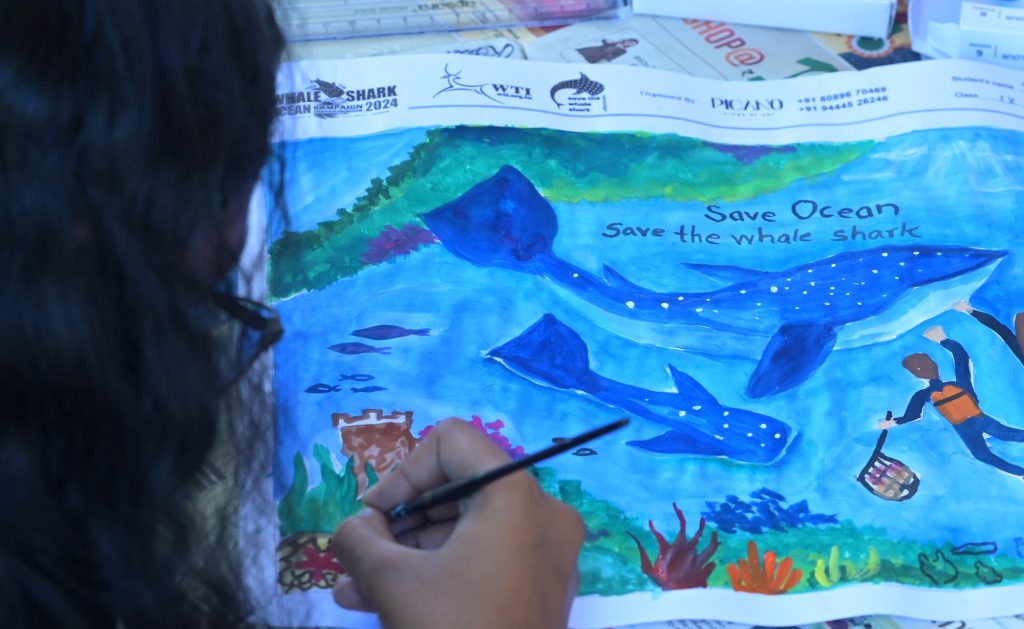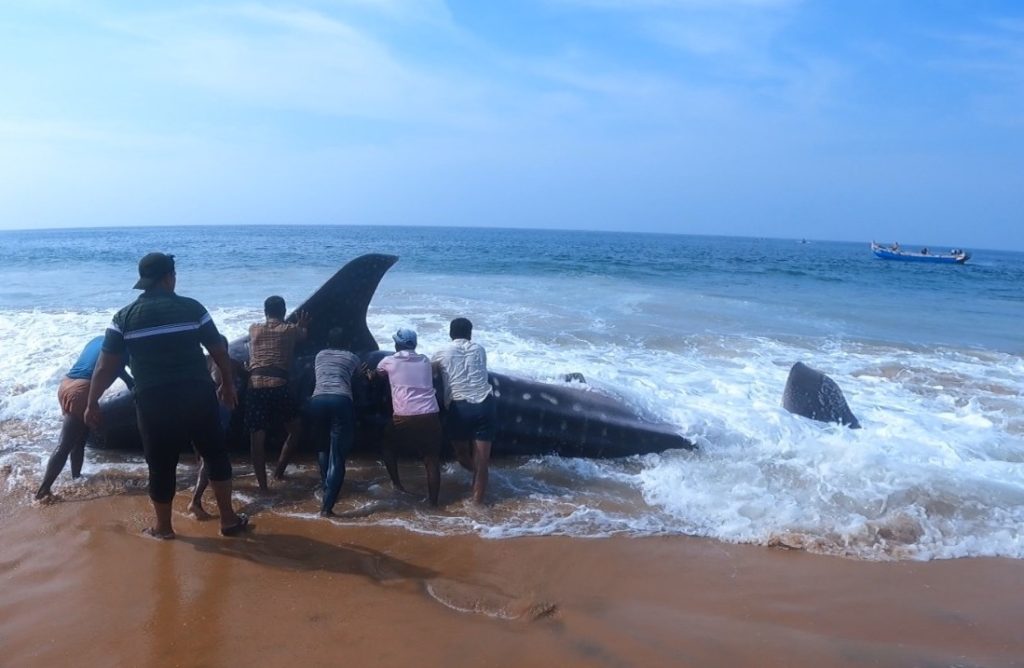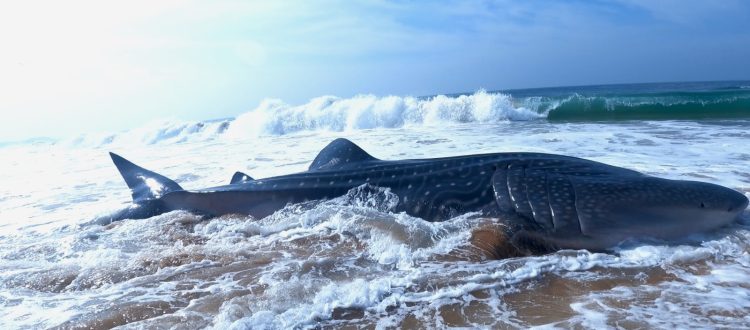Balancing Act: Navigating Conservation and Economic Stability
In a remarkable turn of events, the fishermen of Kerala have transformed from sceptics to active members in the conservation of the majestic whale shark. Initiated in 2017 along the coasts of Kerala and Lakshadweep, a dedicated campaign has not only dispelled myths about the species but has also motivated fishermen to willingly incur economic losses for the sake of conservation.
Partnering with the Wildlife Trust of India (WTI), the Fisheries Department, Fishers Associations, VST Industries Limited, and VMware the “Save the Whale Shark” campaign focused on engaging fishing communities to address accidental entanglement issues. Sensitisation workshops played a pivotal role in altering the attitudes and behaviours of local fishers. These workshops became crucial platforms to communicate the ecological significance of whale sharks, stressing their role in maintaining marine biodiversity and the interconnectedness of the ecosystem. By involving the community in decision-making processes, the campaign aimed to foster a sense of shared responsibility, ensuring that conservation efforts were collaborative initiatives rather than external impositions. To extend the campaign’s reach beyond coastal communities, public awareness events were organised in urban areas.

Public awareness events have helped expand the campaign’s message to a wider audience | Photo by Vinod
Cycle rallies and marathons captured the attention of city dwellers, bringing the message of whale shark conservation to a wider audience. These events not only raised awareness but also generated support from diverse segments of the population, creating a sense of collective responsibility towards marine conservation. Simultaneously, community engagement events facilitated dialogue between conservationists and local communities, addressing concerns related to the economic impact of conservation measures. The success of the campaign was evident as fishermen began embracing proactive involvement in conservation efforts.

Whale Shark rescued on the coast of Trivandrum being pushed into the ocean by rescuers | Photo by Charan K Paidi/WTI
The project’s success is highlighted by the release of 17 whale sharks back into the wild along the coast of Kerala. These sharks that were accidentally entangled in fishing nets, were freed by fishermen who, despite being the sole earners for their families, chose to cut their nets to set them free. In recognition of their commendable efforts, WTI and the Forest Department felicitated these conservation heroes and provided a token amount from the project’s rescue relief fund. However, as the campaign progresses, local fishermen have voiced concerns about the economic impact of unintentionally catching Whale sharks in their nets. Local fishing boat owner, Ramesh, while acknowledging the financial loss as manageable, highlights the importance of considering the broader ecological significance of whale sharks for the health of the ocean. Whereas, Stephen emphasises the absence of compensation for financial losses and suggests that relying solely on the nominal amount of INR 25000 offered by WTI is not sufficient.
This highlights the complex dynamics at play, where the economic concerns of local fishermen intersect with the broader environmental goals of conservation. As a non-profit organisation, we find ourselves at a critical juncture, navigating the delicate balance between economic support and conservation impacts. In such circumstances, the crucial question arises: does conservation come to a standstill in the face of these constraints? Can incentives bring about sustainable and meaningful change?
Certainly, the most apparent approach is if a collaboration can be formed between the Forest Department and WTI to highlight the commitment and find balanced solutions! How does one engage with a government where even India’s national fish remains elusive?
In a world, where the humble fish enjoys legal protection at par with the majestic tiger, a crucial question emerges: will there be adequate funds allocated for compensation? In a developing nation, where the poor get poorer and the minimum wage per day is Rs 179 will there be enough money for compensation to enable the fishers to strike a balance in their efforts towards conservation?









